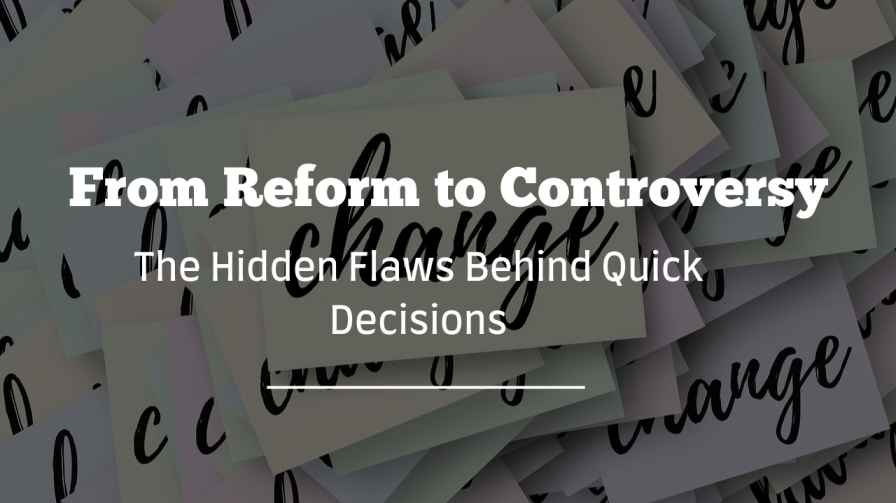The Influence of Media on Public Sentiment
In today’s hyper-connected world, the rendition of news plays a crucial role in shaping public opinion. Whether it’s a televised debate or a newspaper column, how a story is presented can either inform or mislead the masses. Unfortunately, some media outlets cross the line, causing umbrage among viewers who feel their sentiments have been disrespected.
A growing concern is the imputation of motives without evidence — assigning blame or intention to individuals based purely on speculation. This practice not only damages reputations but also breeds antagonism between opposing groups, escalating societal tensions.
As traditional forms of journalism are gradually superseded by online platforms and social media influencers, the balance of power in public communication has shifted. However, this new media landscape often reeks of bias, where sensationalism overrides substance.
The lopsided nature of modern news coverage is evident in how certain stories are prioritized while others are ignored, creating a distorted view of reality. This selective reporting often leads to agitation among communities that feel misrepresented or neglected.
In such a climate, it becomes essential for readers to critically analyze information and question its source. Only then can we foster a culture where facts matter more than headlines, and where responsible journalism is not just an ideal, but a practice.
Vocabulary Words from the passage with their contextual meaning:
(1) Rendition
- Meaning: A way of presenting or interpreting something, especially a performance or account.
- Contextual Explanation: In the passage, “rendition of news” refers to how the media presents or delivers news to the public, which can influence how people perceive the information.
- Example Sentence: The film’s rendition of the novel stayed true to the original story.
Other Meaning: a particular way of performing a song, piece of music, or poem:
Example: She ended the concert with a powerful rendition of “I Will Always Love You“.
(2) Umbrage
- Meaning: A feeling of being offended, annoyed, or insulted.
- Contextual Explanation: In the passage, “umbrage” refers to how people react negatively when media coverage appears biased, disrespectful, or misrepresents their beliefs. It shows that the audience feels hurt or insulted by how the news is presented.
- Example Sentence: Many viewers took umbrage at the journalist’s sarcastic comments about the protest.
(= They felt offended by what was said.)
(3) Imputations
- Meaning: Imputations are accusations or claims that someone is responsible for something negative, often involving blame or wrongdoing.
- Contextual Explanation: Here, imputations refers to the accusations made by the public, who believed the organizers were being insensitive. These weren’t proven facts, but rather emotional responses and blame cast upon the organizers in reaction to how the situation was handled.
- Example Sentence: After the controversial decision, the mayor faced a barrage of imputations from citizens who questioned his motives.
- Barrage of imputations means a large number of accusations or blames made all at once — often emotionally charged and coming from many people.
(4) Speculation
- Meaning: The act of forming ideas or guesses about something that is not fully known or confirmed.
- Contextual Explanation: In many situations, when there’s a lack of clear facts or official statements, people start guessing or assuming what might have happened. These guesses, often without solid evidence, are called speculations.
- Example Sentence: There was intense speculation about the minister’s sudden resignation, but no official reason was given.
(5) Antagonism
- Meaning: hate, extreme unfriendliness, or active opposition to someone
- Contextual Explanation: In the passage, antagonism refers to the deep-rooted hostility between two groups that have long opposed each other. Their interactions are marked by tension, resistance, and a refusal to cooperate, creating a hostile atmosphere.
- Example Sentence: The long-standing antagonism between the two communities made peaceful dialogue nearly impossible.
(6) Supersede
- Meaning: To replace something older or less effective.
- Contextual Explanation: Traditional journalism is being superseded or replaced by online media and social platforms in the way people consume information.
- Example Sentence: Smartphones have superseded basic mobile phones in most countries.
(7) Reek
- Meaning: To strongly smell of something; metaphorically, it means to be strongly suggestive of an unpleasant quality.
- Phrase: “Reeks of bias” – Meaning & Contextual Use
- In the passage, “reeks of bias” means that something (such as a statement, article, or decision) very clearly shows unfairness or prejudice, even if not directly stated. It implies that the bias is so strong and obvious, it’s almost like a foul smell — hard to ignore.
Why it’s used here: The phrase is used to emphasize that the rendition or version being presented is not neutral or objective — it is heavily tilted or unfair, and that unfairness is obvious to the reader or listener.
- Example Sentence: The news report reeks of bias, as it only highlights one side of the issue while completely ignoring the other.
(8) Sensationalism overrides substance
- Meaning: This phrase means that dramatic or shocking presentation (sensationalism) is given more importance than actual meaningful content (substance).
- Contextual Explanation: It criticizes how, in media or public discourse, attention-grabbing headlines, emotional exaggeration, or controversy are often prioritized over factual depth, analysis, or truth.
- Example Sentence: In many news channels today, sensationalism overrides substance, with anchors focusing more on drama than real issues.
(9) Lopsided
- Meaning: Lopsided means uneven, unbalanced, or unequal, especially in a way that is unfair or biased.
- Contextual Explanation: In the passage, “a lopsided portrayal of events” refers to a depiction that is not neutral or fair, favoring one side while ignoring or misrepresenting the other. It implies a lack of objectivity.
- Example Sentence: The documentary gave a lopsided view of the conflict, showing only one group’s perspective.
(10) Agitation
- Meaning: Agitation means a state of nervousness, unrest, or strong public protest—either emotional turmoil or organized disturbance.
- Contextual Explanation: In the passage, “public agitation intensified” means that people’s unrest or protests grew stronger due to how the issue was portrayed. The media coverage likely stirred emotions, leading to wider discontent and louder opposition.
- Example Sentence: The controversial decision led to widespread agitation, with people marching in the streets demanding justice.



